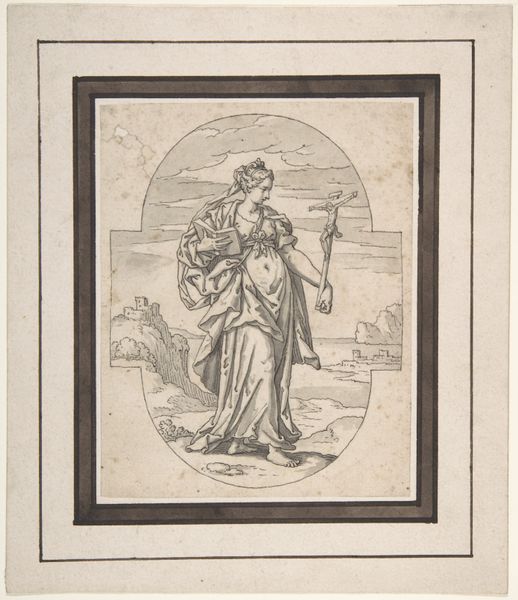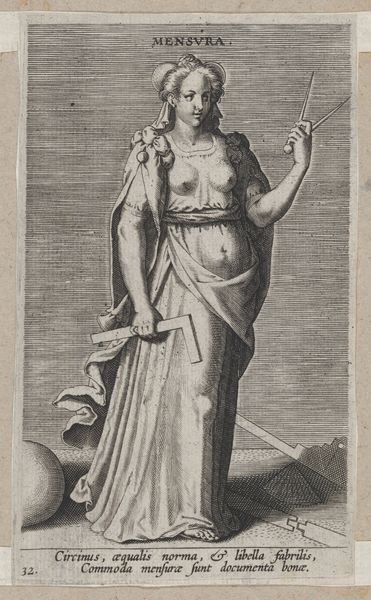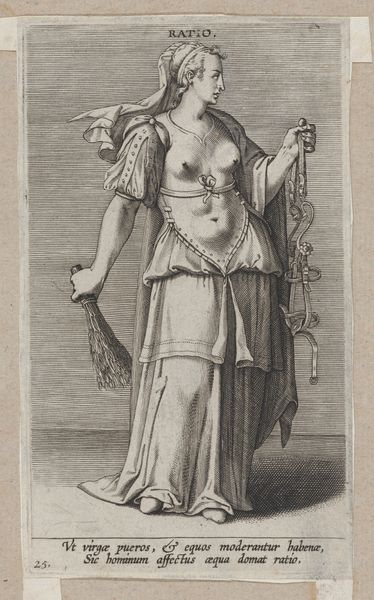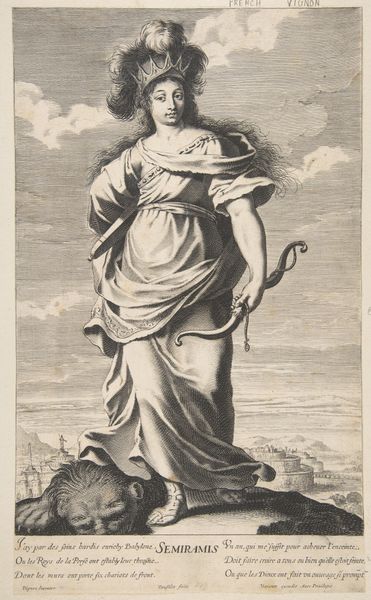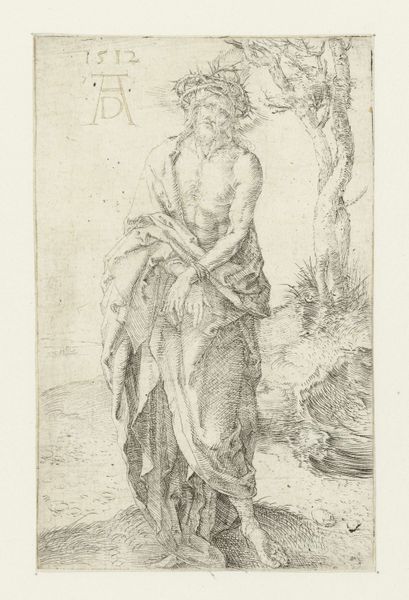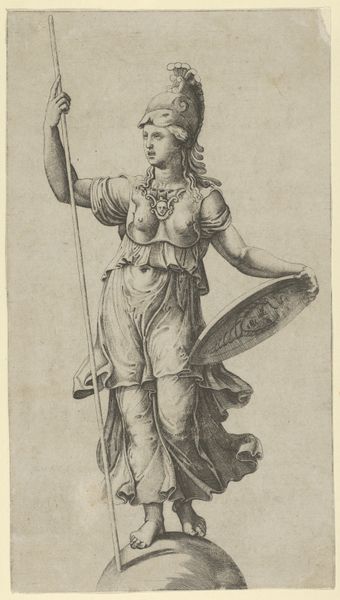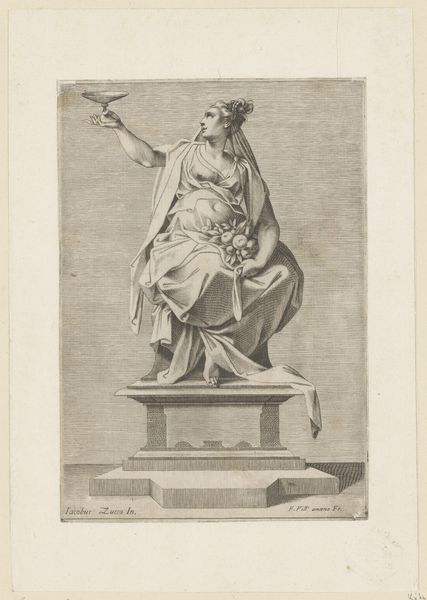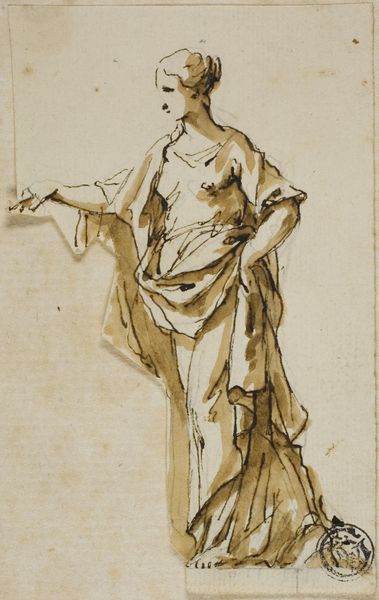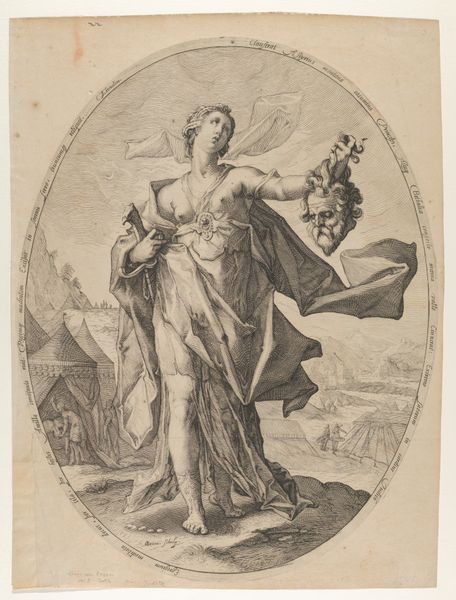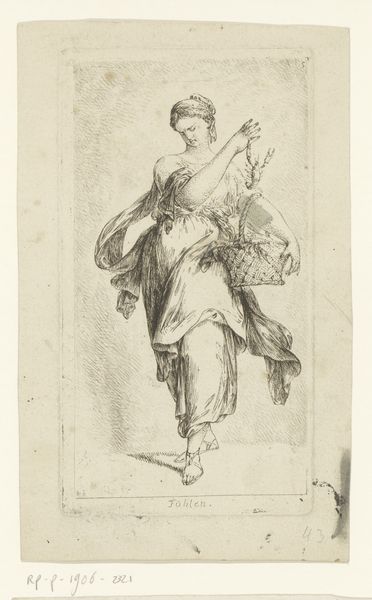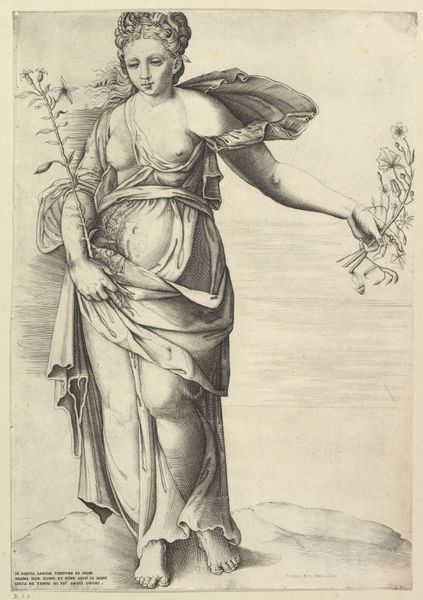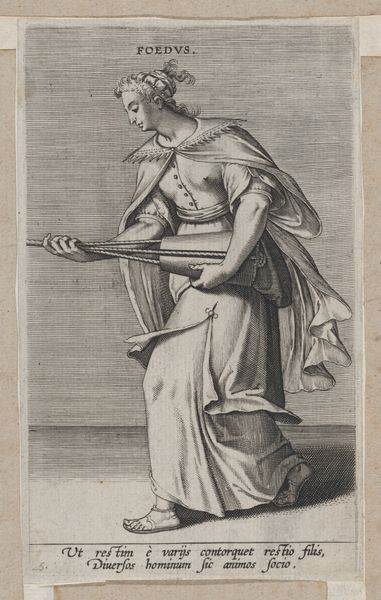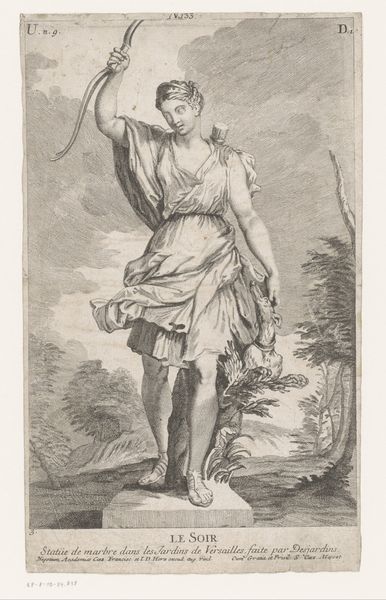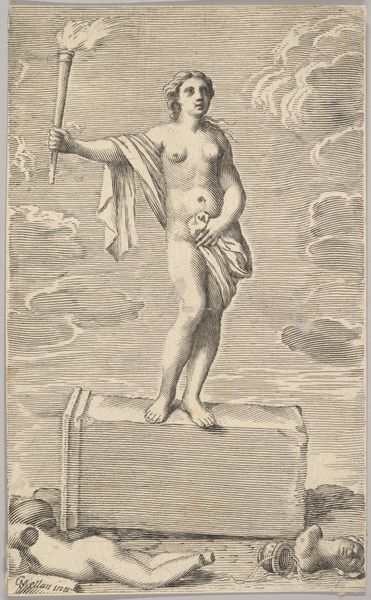
drawing, engraving
#
drawing
#
allegory
#
pencil sketch
#
figuration
#
11_renaissance
#
pencil drawing
#
italian-renaissance
#
nude
#
engraving
Dimensions: height 390 mm, width 268 mm
Copyright: Rijks Museum: Open Domain
Enea Vico created this print of Proserpina and Ascalaphus in the mid-16th century in Italy. Here, we see the Roman goddess Proserpina about to transform Ascalaphus into an owl. The image draws on Ovid's telling of the story, in which Ascalaphus reveals that Proserpina has eaten pomegranate seeds in the underworld, thereby sealing her fate to remain there for part of each year. In a rage, Proserpina throws water on Ascalaphus, turning him into an owl. Vico's print takes up this theme of transformation and punishment. It was made at a time when the printing press was changing how people accessed images and information. Prints like this one allowed for the wider circulation of classical stories and imagery, shaping cultural and intellectual life. Understanding this artwork involves researching the classical sources that inspired it, as well as the printmaking techniques used. We can better appreciate the print's role in disseminating classical culture during the Renaissance by considering its historical and cultural context.
Comments
No comments
Be the first to comment and join the conversation on the ultimate creative platform.
